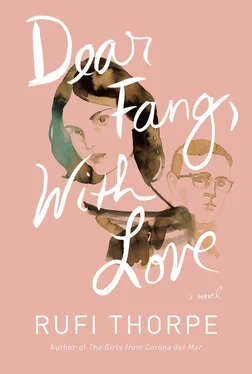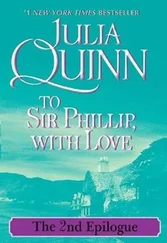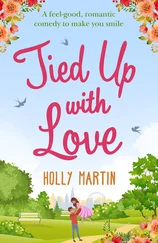It turns out that twenty-six-year-old guys are exactly like seventeen-year-old guys. All they want is to press up against you and kiss you. It’s exactly the same. It doesn’t matter how educated they are or whether they would think your thoughts are foolish or if they would judge you for keeping the remains of your Pokemon collection in your room, because in that moment they aren’t having any thoughts: All they are is wanting you. All they are is having a hard time breathing normally. All they are is chemicals.
It was reassuring, and at the same time crushingly sad. Like the saddest thing I have maybe ever learned in my whole life.
And thus begins Stage 2. The new part of my life. The part where everyone is just an animal, even me.
THE NEXT MORNING WE ACCIDENTALLY slept through a lecture about Czesław Miłosz that I had wanted to attend. I didn’t like skipping out on an event we’d already paid for, but it was also about all I could manage just to sit around with Judith and Vera drinking coffee and eating rye toast. We were all mildly hungover. I felt nervous and ultimately uncomfortable with what had happened the night before. I had wound up kissing Susan. I was pretty sure Vera had wound up making out with Daniel. It was not good parenting. I had tried to talk to Vera about it once we got home, and it had become some kind of un-understandable fight.
“I’m your father,” I had said in the suddenly too-bright light of our kitchen. “There have to be boundaries, there have to be rules.”
“Do you realize you are yelling at me for being drunk while you are drunk right now?” she said, and pulled out a big block of cheese, cut us both slices.
“I am not drunk,” I said, although I was.
“You’re such a fucking hypocrite,” she said.
“What I’m saying, though, Vera, is that this dynamic of me just trying to be your friend so that you’ll like me — it has to change. It can’t stay this way. I can’t bribe you into liking me.”
“So what? You’re gonna playact patriarch now? You’re gonna make a bunch of rules for me to follow and then feel proud of yourself because you made me toe the line?” She said all of this with a mouthful of cheese. Really, it was all comical, but in the moment I was blinded with rage, made almost inarticulate by it.
“I am the patriarch!” I shouted. “I am your actual patriarch!”
She laughed at me then, hard, the cheese in her open mouth showing. She bent over, hawing like a donkey, slapping her knee. I was shaking, I was so angry with her. A different man would have slapped her. I stood there as she just kept laughing, moaning, trying to breathe. “Sorry,” she said, “sorry, that’s just — oh, it’s too rich. It was too good!”
I looked at her for another shaky moment, then went into my room, slammed the door, and fumed for a while in bed, sure that I would never be able to fall asleep, before suddenly and completely losing consciousness.
The next morning I felt angry, ashamed, confused, sheepish, but mostly incredibly anxious. As I had gotten older, the chief physical symptom of drinking too much became a feeling of intense anxiety the next day, and that made my assessment of the night before confused. All of this combined with other feelings of guilt regarding missing the scheduled lecture, my general tendency to drink too much, my lack of exercise, my inability to grow up, yada, yada, yada.
It was also difficult to tell which of us had even been right. There was no longer any worry about drinking interfering with her medication. She wasn’t on any medication! And it wasn’t like in America, where Vera was still years and years from the legal age to drink. Here she was, if not technically legal, then practically legal. Certainly it did not seem like a big enough deal to have warranted screaming about being a patriarch and slamming a door. In short, there was nothing to do but try to wade through all of it until my mental state returned to normal and I could gain the proper perspective.
Still, I would have liked to hear what they said about Miłosz. I had read Miłosz before, but somehow he had failed to make enough of an impression. I had vaguely associated him with dreary Eastern Europe, and never really got the memo that he was practically the official poet laureate of my grandmother’s hometown. I had only ever read a poem or two. But then Darius passed out a handout with one of his poems on it and I got curious and started doing some googling.
What I had always loved most about literature was the way it eased my own loneliness. Even as my mother’s son, at my most awkward and chubby and sunburned, sure I would never have a girlfriend, there was always Shakespeare. There was the possibility of having one’s most opaque yearnings and vague intimations transformed before one’s eyes into the beautiful forms of perfectly expressed thought. It was like visiting a mind reader. It was better than having a lover or even a best friend or a mother. And Miłosz read things in my mind I had given up on ever being able to express.
I felt like an idiot for not reading his poems every day of my goddamn life.
I wondered if maybe everything would have turned out differently in my career if I had just chanced upon Miłosz earlier. If I had decided to write about him instead of Virginia Woolf.
I thought often of my failed dissertation. It was like a maze my mind continually tried to run, though by now most of the passageways were so clogged with shame and guilt that I couldn’t make it all the way through to the end of my thought, to that reassuring flush of completion that signaled an idea was functional, that it worked, that it was worth finishing. At times I thought my dissertation was probably the most brilliant thing anyone had ever tried to write about Woolf. Other times, it seemed like everything I was saying was so patently obvious that if I published the thing, everyone would laugh at me. I was not able to hold my perception of it steady, and so my dissertation continually morphed and changed under my scrutiny, like Proteus, only it was just a Word document.
Part of the problem was that I had edged myself out into the frontier between psychology and literary criticism. This excited my committee, since they had been brainwashed by one million faculty meetings into a slavish lust for all things interdisciplinary, but the truth was, I wasn’t trained in psychology and I had no idea what the fuck I was doing. I was making connections, but I wasn’t able to tell whether the connections were valid. I was trying to take the idea of theory of mind, a thesis in psychology that was getting a lot of press in regards to autism, and apply it to Woolf. Theory of mind was kind of a misleading term. What these people were talking about was mind reading. Not psychic-in-a-turban mind reading but the ordinary kind we do every day. We see someone make a mad face, and we say, “Ooh, they must be mad!” We see a girl raise her hand in class, and we assume that she is going to ask a question. We infer people’s states of mind from their actions and from the context. The argument was that autistic people had trouble making these same inferences. They weren’t able to accurately infer what someone else might be thinking from the external indicators. Other people were as unfathomable to them as aliens or robots.
Some literary critics had proposed that reading novels was a way of exercising our theory of mind, practicing our mind-reading abilities, our empathic connection to others. When we were able to read minds correctly, we got a little thrill of success, the same kind of kudos we got from being able to run or achieve feats of strength, an assurance to ourselves that we would survive, that we would be able to navigate the world and its complex social hierarchies. The only problem was, after all the literary critics got on board and started publishing books, and after I had my dissertation idea approved by my committee, there started to be an awful lot of dissent in the field of psychology over what theory of mind was, if it even existed.
Читать дальше












